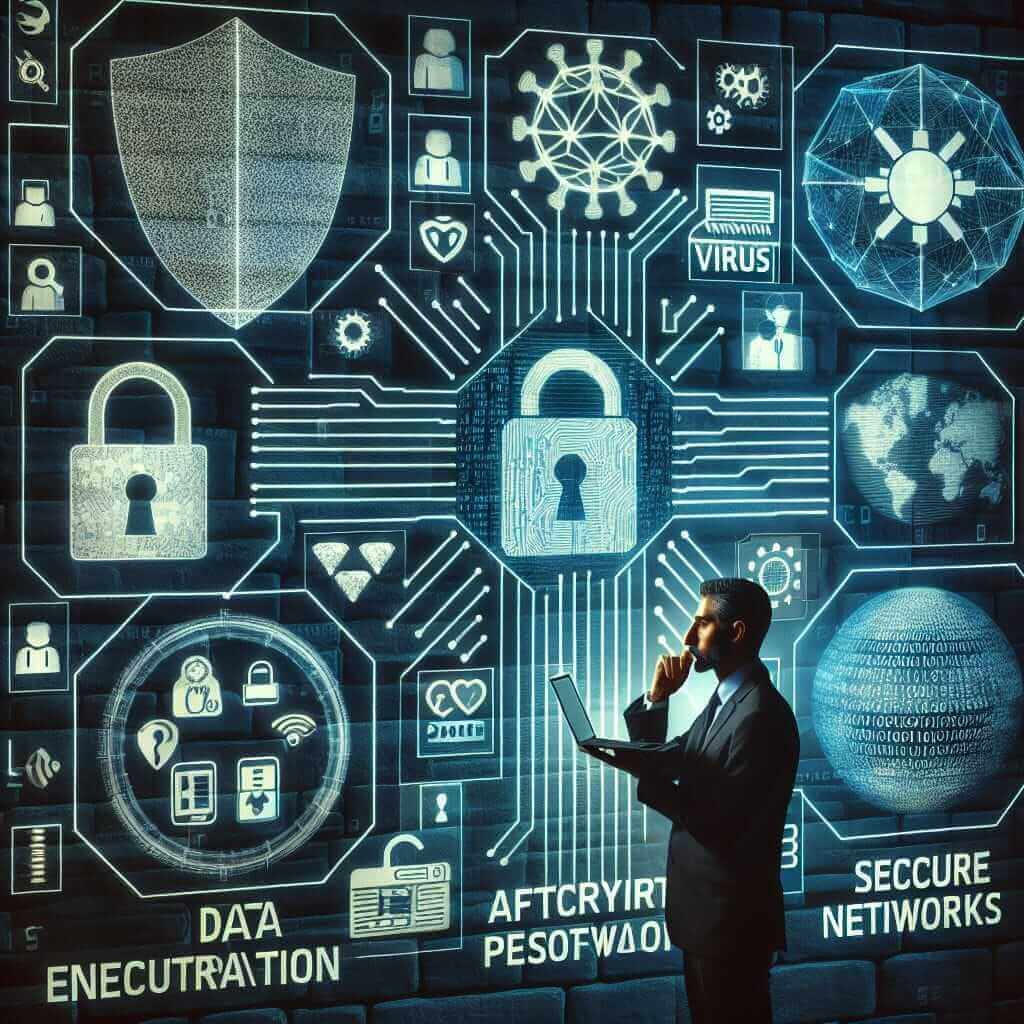Pronunciation: /ˌsaɪ.bər.səˈkjʊə.rɪ.ti/
Part of Speech: Noun
Definition: Cybersecurity refers to the practice of protecting computer systems, networks, and data from unauthorized access, use, disclosure, disruption, modification, or destruction.
Synonyms:
- Cyber defense
- Information security
- IT security
- Computer security
- Network security
Antonyms:
- Cybercrime
- Cyberattack
- Data breach
Example Sentence: In today’s digital age, cybersecurity is paramount for individuals and organizations alike.
Understanding Cybersecurity
Cybersecurity is a critical topic in today’s interconnected world. As technology advances, so do the methods used by cybercriminals. It encompasses a range of strategies, technologies, and practices designed to mitigate risks in cyberspace. This includes protecting against:
- Data breaches: Unauthorized access to confidential information.
- Malware: Malicious software like viruses, worms, and ransomware.
- Phishing attacks: Attempts to steal sensitive information through deceptive emails or websites.
- Denial-of-service attacks: Overwhelming systems to make them unavailable to users.

Cybersecurity in the IELTS Exam
The topic of cybersecurity can appear in various sections of the IELTS exam:
- Listening: You might encounter lectures or conversations about data privacy, online security measures, or the impact of cybercrime.
- Reading: Passages could discuss cybersecurity trends, the importance of strong passwords, or the role of governments in combating cyber threats.
- Writing Task 2: You may be asked to provide your opinion on issues like internet censorship, data protection laws, or the responsibility of individuals in maintaining cybersecurity.
- Speaking: Be prepared to discuss your online habits, concerns about data privacy, or the importance of cybersecurity awareness.
Using “Cybersecurity” in Your IELTS Responses
Writing Task 2 Example:
Question: Some people believe that governments should have complete access to individuals’ online data to prevent crime. Others argue that this is a violation of privacy. Discuss both views and give your own opinion.
Sample Response:
In the digital age, the debate surrounding cybersecurity and privacy has become increasingly contentious. Proponents of government surveillance argue that unrestricted access to online data is crucial for preventing crime and terrorism. They contend that by monitoring online activities, authorities can identify potential threats and take preemptive action. For instance, tracking suspicious online communication could help law enforcement agencies thwart cyberattacks or apprehend criminals planning illegal activities.
However, granting governments unfettered access to personal data raises serious concerns about privacy violations. Critics argue that such measures erode civil liberties and create a climate of distrust between citizens and the state. The potential for misuse of this information is significant, with the possibility of governments targeting individuals based on their political views or other sensitive factors.
In conclusion, while the need for robust cybersecurity measures is undeniable, striking a balance between security and privacy is paramount. Rather than granting governments complete access to personal data, a more effective approach would involve targeted surveillance based on reasonable suspicion and subject to judicial oversight. This would help safeguard both national security and individual rights in the digital realm.
Collocations and Idioms:
- Strengthen cybersecurity: “Governments and businesses must work together to strengthen cybersecurity measures.”
- Cybersecurity threats: “The rise of the Internet of Things has introduced new cybersecurity threats.”
- Data protection laws: “Stricter data protection laws are needed to safeguard personal information online.”
- Cybersecurity awareness: “Raising cybersecurity awareness among the public is crucial to preventing cybercrime.”
- A double-edged sword: “Technology is a double-edged sword; it offers both opportunities and cybersecurity risks.”
Conclusion
Mastering vocabulary related to cybersecurity is essential for achieving a high score in the IELTS exam. By understanding the various aspects of this topic, practicing its use in different contexts, and familiarizing yourself with relevant collocations and idioms, you can confidently discuss cybersecurity issues and impress the examiners with your vocabulary range and fluency. Remember to stay updated on current events and trends in cybersecurity as this will provide you with valuable content for your IELTS responses.